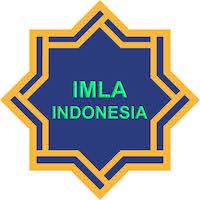Tinjauan Bahasa Asing (Arab) di Indonesia
DOI:
https://doi.org/10.18592/jams.v2i2.247Keywords:
tinjauan, bahasa, asing, arab, indonesia, inggris,Abstract
ABSTRAK????? ??? ?????????? ???? ?????? ????????? ????? ??? ????????? ??????? ??????? ??? ????? ????? ???????? ????????? ?????? ?????????? ??? ?????? ????????? ???? ?? ??????? ????? ???????? ?????????. ??????? ??????? ???? ????? ??????? ???????? ????????? ????? ???????? ???? ????????. ??????? ?????? ???????? ?? ?????? ???? ?????? ????????? ??? ???????? ???????? ????? ????? ????? ???????? ?????????. ?????? ????? ???? ??????? ???????? ?? ?????? ??????????? ?????? ?????? ????????? ?? ??????????? ????????????? ??? ???????????????? ??? ????????? ????????????? ?? ?????? ????????? ???????? ???????????? ?????????.References
Effendi, Ahmad Fuad. 2009.
Metodologi Pengajaran Bahasa Arab, Misykat, Malang
Al-Fauzan, Abdurrahman dkk. 1425 H.
Muhaimin, dkk. 2008. Pengembangan Model KTSP Pada Sekolah dan Madrasah Rajawali Press, Jakarta.
Mujib, Fathul. 2010. Rekonstruksi Pendidikan Bahasa Arab, Pedagogia, Bandung
Peraturan Menteri Agama Republik Indonesia nomor 2 tahun 2008
Sumardi, Muljanto dkk. 1974. Pedoman Pengajaran Bahasa Arab pada Perguruan Tinggi/IAIN, Jakarta, Proyek Pengembangan Sistem Pendidikan Agama
Undang-undang No. 20 Tahun 2003 tentang Sistem Pendidikan Nasional.
Downloads
Published
Issue
Section
License
Authors who publish with this journal agree to the following terms:
- Authors retain copyright and grant the journal right of first publication with the work simultaneously licensed under a Creative Commons Attribution License that allows others to share the work with an acknowledgement of the work's authorship and initial publication in this journal.
- Authors are able to enter into separate, additional contractual arrangements for the non-exclusive distribution of the journal's published version of the work (e.g., post it to an institutional repository or publish it in a book), with an acknowledgement of its initial publication in this journal.
- Authors are permitted and encouraged to post their work online (e.g., in institutional repositories or on their website) after the submission process, as it can lead to productive exchanges, as well as earlier and greater citation of published work.






